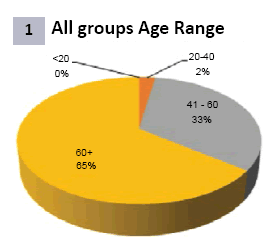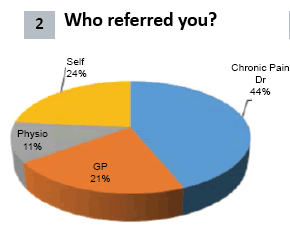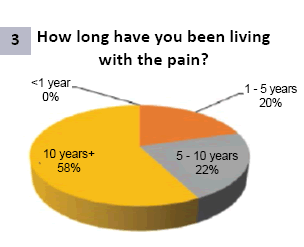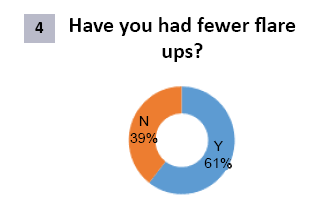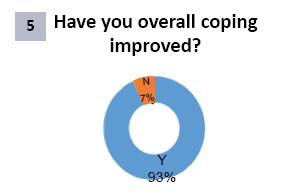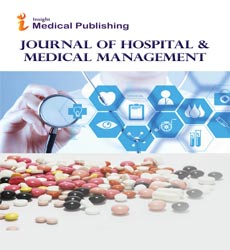Pain Association Scotland
Sonia Cottom
DOI10.4172/2471-9781.100010
Sonia Cottom*
Pain Association Scotland, UK
- Corresponding Author:
- Sonia Cottom
Director, Pain Association Scotland, Suite D
Moncrieffe Business Centre Friarton Road, Perth, UK.
Tel: 01738 629503
Fax: 01738 625611
Received Date: May 06, 2016; Accepted Date: May 07, 2016; Published Date: May 10, 2016
Citation: Cottom S. Pain Association Scotland. J Hosp Med Manage. 2016, 1:2.
Background
The network of staff led Community Based Self-Management groups throughout Scotland and Northumbria have enabled chronic pain sufferers to make positive practical changes leading to improved levels of coping, well-being and quality of life; not only for the sufferers, but their carers, family and colleagues.
We understand the pressures this creates within the Chronic Pain service of increasing demand coupled with reduced resources. The local monthly self-management groups provide a costeffective benefit to the local pain service, health benefits to patients, a potential reduction in service usage and an increase in patient engagement.
Methods
Service users were asked to participate in an anonymous survey to help the Association evaluate the effectiveness of the provision of their monthly self-management group meetings. The survey included questions about their experience and interaction with our training officers, the relevance of the various topics; and any recorded differences or improvements in coping strategies.
The Survey
Items on the survey were worded as positive statements or direct questions, and included the following topics:
• Overall communication response time.
• The customer service representative’s level of knowledge.
• Professional characteristics of the customer service representative.
• Whether the problem had been resolved.
Note: The complete survey questionnaire is included later in this document for reference.
Results
Age range
These results clearly demonstrate the importance of selfmanagement to support patients back into employment; keep those who are in work at work and also to be able to have the benefit of an improved quality of life in the long-term (Figure 1).
Referral process
44% of respondents had been referred by a Chronic Pain clinician from Secondary Care. There is much focus around the importance of enabling patients to have access to self-management at a much earlier stage in their journey, from within Primary Care. It is envisaged that with all the work around the Integration of Health and Social Care, that going forward, the 21% of patients referred by GP’s will be improved upon as patients are empowered and directed to supported self-management at a much earlier stage in their pathway of care (Figure 2).
Pain levels
The majority (58%) of service users have been living with their pain for over 10 years; recognizing that chronic pain is a longterm condition which has a significant impact on a persons’ quality of life and also recognizing the fact that people also need to consider the economic impact of managing this long-term condition particularly if they are in employment or even unable to work because of their chronic pain (Figure 3 and Table 1).
| Survey Question | Response Scale and Count | |||||||||
|---|---|---|---|---|---|---|---|---|---|---|
| 1 | 2 | 3 | 4 | 5 | 6 | 7 | 8 | 9 | 10 | |
| Relevance of the group to my situation | 1 | 0 | 1 | 3 | 3 | 4 | 7 | 17 | 27 | 53 |
| Experience of being in a group | 1 | 1 | 0 | 2 | 4 | 1 | 10 | 25 | 27 | 45 |
| How well the Training officer explained the topic | 1 | 0 | 0 | 0 | 0 | 2 | 2 | 9 | 19 | 83 |
| Relevance of pacing | 1 | 1 | 0 | 2 | 4 | 4 | 8 | 16 | 28 | 50 |
| Relevance of Stress Management | 0 | 0 | 0 | 3 | 6 | 6 | 9 | 18 | 23 | 47 |
| Relevance of dealing with difficult thoughts/feelings | 0 | 3 | 1 | 5 | 2 | 4 | 16 | 22 | 18 | 44 |
| Relevance of relaxation | 1 | 2 | 2 | 2 | 3 | 4 | 9 | 21 | 22 | 50 |
| Benefit of meeting others | 1 | 1 | 0 | 2 | 2 | 0 | 6 | 14 | 21 | 67 |
Table 1 Pain levels survey.
Since these topics are inter-related the experienced staff member leading the group can guides the pace and individual needs of participants attending each session.
It can be clearly seen that the service users are benefiting from the various topics the Association delivers and demonstrates how the relevance of these is seen as applicable to their respective coping issues.
The group meeting content underpinning these figures includes:
• The relationship between stress and health (bio-psycho-social),
• Understanding chronic conditions relaxation,
• Breathing and distraction techniques,
• Combined breathing and gentle stress reducing movement,
• Communication and understanding,
• Pacing and goal setting,
• Dealing with unhelpful thoughts and feelings,
The overall benefit to patient’s health and well-being in terms of improved coping, fewer GP visits and fewer flare-ups cannot be underestimated. The fact that 93% of our service users have experienced an increase in their overall coping of chronic, painful condition as well as 61% also seeing a reduction in flare-ups clearly demonstrates the effectiveness of the topics and how they are delivered in their group (Figures 4 and 5).
Conclusion
Sufferers of Chronic Pain have been poorly supported in the past, and many sufferers report that their pain is not believed or that there is apathy to the condition. This discussion has shown that through a network of staff led community based selfmanagement groups and training programmes, service provision can be developed to help with this situation. Utilised in this way, the correct service structure empowers chronic pain sufferers, their carers, family and colleagues to make positive practical changes leading to improved levels of coping, well-being and quality of life, without impacting on the already under resourced NHS services. Clearly, focused, managed and monitored resource can help sufferers understand and manage their chronic pain condition and unwanted change in health outlook by seeking positive adaptive and coping mechanisms which can ultimately lead to a better quality of life.
Open Access Journals
- Aquaculture & Veterinary Science
- Chemistry & Chemical Sciences
- Clinical Sciences
- Engineering
- General Science
- Genetics & Molecular Biology
- Health Care & Nursing
- Immunology & Microbiology
- Materials Science
- Mathematics & Physics
- Medical Sciences
- Neurology & Psychiatry
- Oncology & Cancer Science
- Pharmaceutical Sciences
